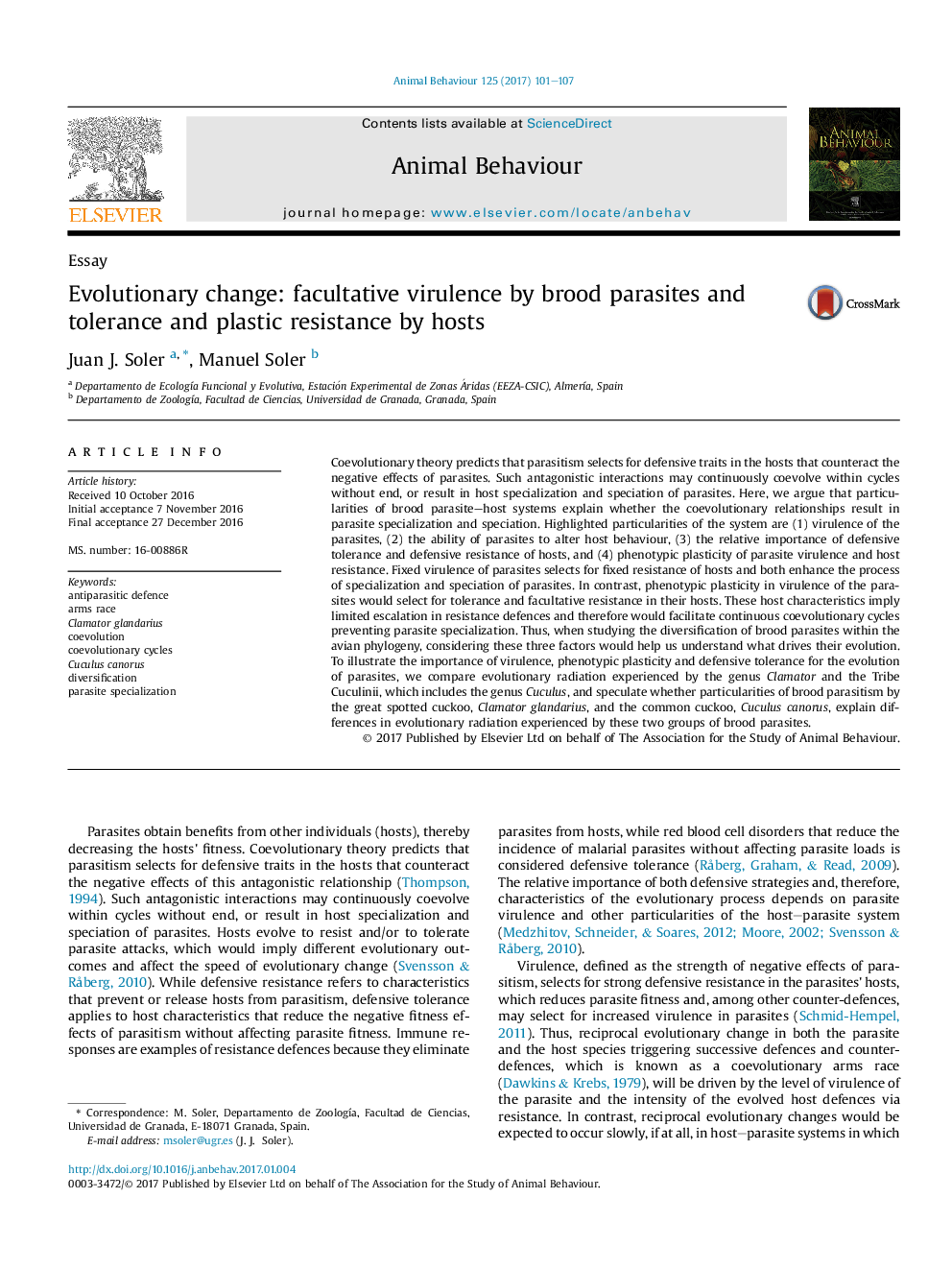| کد مقاله | کد نشریه | سال انتشار | مقاله انگلیسی | نسخه تمام متن |
|---|---|---|---|---|
| 5538544 | 1552203 | 2017 | 7 صفحه PDF | دانلود رایگان |
عنوان انگلیسی مقاله ISI
Evolutionary change: facultative virulence by brood parasites and tolerance and plastic resistance by hosts
ترجمه فارسی عنوان
تغییرات تکاملی: ویروسی شدن فاکتورهای ناشی از انگل ها و تحمل و مقاومت پلاستیکی توسط میزبان
دانلود مقاله + سفارش ترجمه
دانلود مقاله ISI انگلیسی
رایگان برای ایرانیان
کلمات کلیدی
موضوعات مرتبط
علوم زیستی و بیوفناوری
علوم کشاورزی و بیولوژیک
علوم دامی و جانورشناسی
چکیده انگلیسی
Coevolutionary theory predicts that parasitism selects for defensive traits in the hosts that counteract the negative effects of parasites. Such antagonistic interactions may continuously coevolve within cycles without end, or result in host specialization and speciation of parasites. Here, we argue that particularities of brood parasite-host systems explain whether the coevolutionary relationships result in parasite specialization and speciation. Highlighted particularities of the system are (1) virulence of the parasites, (2) the ability of parasites to alter host behaviour, (3) the relative importance of defensive tolerance and defensive resistance of hosts, and (4) phenotypic plasticity of parasite virulence and host resistance. Fixed virulence of parasites selects for fixed resistance of hosts and both enhance the process of specialization and speciation of parasites. In contrast, phenotypic plasticity in virulence of the parasites would select for tolerance and facultative resistance in their hosts. These host characteristics imply limited escalation in resistance defences and therefore would facilitate continuous coevolutionary cycles preventing parasite specialization. Thus, when studying the diversification of brood parasites within the avian phylogeny, considering these three factors would help us understand what drives their evolution. To illustrate the importance of virulence, phenotypic plasticity and defensive tolerance for the evolution of parasites, we compare evolutionary radiation experienced by the genus Clamator and the Tribe Cuculinii, which includes the genus Cuculus, and speculate whether particularities of brood parasitism by the great spotted cuckoo, Clamator glandarius, and the common cuckoo, Cuculus canorus, explain differences in evolutionary radiation experienced by these two groups of brood parasites.
ناشر
Database: Elsevier - ScienceDirect (ساینس دایرکت)
Journal: Animal Behaviour - Volume 125, March 2017, Pages 101-107
Journal: Animal Behaviour - Volume 125, March 2017, Pages 101-107
نویسندگان
Juan J. Soler, Manuel Soler,
